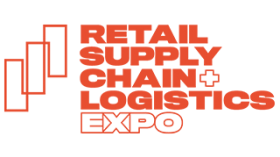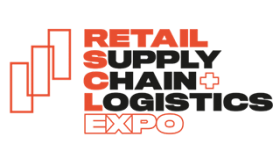Since 1987, Mantair Ltd has been providing trusted, compliant, and environmentally responsible wastewater treatment solutions across the UK.
Giving your fleet a green spring clean
 With the opportunity to counter rising fuel prices by opting for more fuel efficient vehicles, lower CO2 models and expanding electric and hybrid vehicle ranges, now is definitely the time to think about greening the fleet if you have not already done so.
With the opportunity to counter rising fuel prices by opting for more fuel efficient vehicles, lower CO2 models and expanding electric and hybrid vehicle ranges, now is definitely the time to think about greening the fleet if you have not already done so.
Gain stakeholder buy-in
Start by securing stakeholder buy-in for the business case to green the fleet. It won’t be truly successful unless senior management are convinced of the benefits and back the policy. Equally important is to achieve buy-in from employees eligible for a company car or car salary sacrifice scheme. Also beware a bad policy that drives eligible employees down the ‘cash-for-car’ route.
Employees who resent having a particular vehicle can also quickly manage to make even a clean, efficient vehicle perform inefficiently. And remember, a badly driven ‘green’ vehicle can prove a bigger polluter than a carefully driven petrol or diesel car.
Ensure eligible employees are made aware of any financial savings available to them – low CO2-emitting will reduce Benefit‑in‑Kind (BiK) tax and private fuel costs.
Calculate return on investment
Ensure from the outset that you can calculate a return on investment (ROI). Running a fleet is one of the highest overhead costs for any organisation after payroll and facilities. The business case for company vehicles can only be made if they are essential to an organisation’s day-to-day activities or are fulfilling some other purpose such as helping to recruit and retain the best employees in the war for talent or in achieving sales targets.
Care should be taken to not make the green fleet policy too restrictive. If you reduce car choice, you can end up demotivating employees at the very time that you are trying to engage them. Not offering a wide choice can also result in eligible drivers opting for the aforementioned ‘cash-for-car’ alternative. This will be counter-productive as ‘cash‑for‑car’ drivers tend to run older, less fuel efficient and higher CO2-emitting cars.
Be technologically-neutral
There is no single, green fleet off‑the‑shelf solution. Certainly, a green fleet policy reliant on a single energy source – petrol, diesel, electric, hybrid, biofuel, LPG – will create problems later on, especially given the pace of technological advances. Specifying the lowest CO2‑emitting vehicles is no answer either. This can result in driver dissatisfaction, a shift away from company cars towards ‘cash-for-car’, lower operational performance and increased costs.
The best fleet policies adopt a ‘technologically neutral’ approach, specifying the lowest CO2-emitting vehicles which are right for the job, i.e. ‘fit for purpose’. This usually results in a mix of petrol and diesel plus some hybrid and electric vehicles.
Specifying the right blend of low CO2-emitting vehicles will secure two objectives. First, you will be able to gain significant cost savings. Second, you will avoid having to radically review fleet policy every time a significant advance in technology is brought to market.
Assess vehicles properly
Set clear cost, fuel economy, performance, safety, technical and qualitative evaluation criteria before finalising the vehicle list and conduct a thorough assessment before settling on the final choice list.
When assessing potential vehicles, consider Euro NCAP (European New Car Assessment Programme) ratings. The higher, the better. And remember a model may gain 5 stars one year and receive a lower rating when a newer version comes out.
Other factors to be taken into consideration include determining the size and kind of car needed for the job required, i.e. ‘fitness for purpose’, and then evaluating the best performers in that group.
To maximise buy-in, enlist the support of drivers in the selection and evaluation process, especially those who will be driving the proposed vehicles on a daily basis. Make sure they are properly briefed on the evaluation process so that their assessment is objective. Testers need to be acquainted with the key features of vehicles under test to understand any special driving characteristics. Hybrids, for example, require a different driving style to optimise their potential energy savings.
Compare costs
Avoid the mistake of simply comparing monthly rental costs. Fleet costs are far more complex than that and the best method is to compare whole life costs (WLC). While there is no agreed minimum standard, the least that should be included is depreciation, SMR, fuel, funding, insurance, NI, and VED costs.
While WLC will ensure that you make more informed decisions you should monitor costs throughout the life of the vehicle to ensure that the objectives of the original business case have been met.
And never forget that the cheapest mile is the one never driven since the biggest fleet cost, after vehicle depreciation, is fuel.
At work drivers should always be challenged whether their journey is really necessary or could be covered by other means – an audio, video or web conference call, telephone or e-mail. Where sanctioned, consideration should be given to whether to whether the journey could coincide with some other associated activity or the car journey could be shared with other employees, or public transport used, to reduce costs.
Influencing how employees drive through education, tips, training and awareness can also quickly achieve significant fuel savings.
If you haven’t already done so, adopting a green fleet policy now should be a top priority. A green fleet policy will secure significant cost savings and underscore an organisation’s CSR credentials. All you need to do is adopt a professional approach to managing your fleet using best practice.
Further information
www.icfm.com
Event Diary
Retail Supply Chain & Logistics Expo returns to Excel London across 12-13 November, once again bringing together the world of logistics, supply chain, eCommerce and retail innovation for two dynamic days of opportunity.
Every sport, from grassroots football to world-class tournaments, depends on one constant: high-quality playing surfaces and well-maintained green spaces.
Tickets: Free registration available at www.retailscl.com
The Retail Supply Chain & Logistics Expo is the UK’s leading event for retail supply chain and logistics professionals, showcasing the latest innovations in fulfilment, 3PL, AI-driven automation, and warehouse technology.
Supplier Profiles
Bauder Accepts Keys to its New UK Distribution Centre at Gateway 14
Bauder marked a major milestone in its UK expansion with the official handover of a brand
Words of World: Bridging language barriers with excellence
At Words of World, we specialise in professional translation and interpreting, d
Latest Features
The British Institute of Cleaning Science (BICSc) and the Cleaning & Support Services Association (CSSA) have successfully completed a groundbreaking project aimed at exploring the future of cleaning. This collaboration marks a significant milestone in the cleaning industry, reflecting a shared commitment to embracing innovation with confidence.
The Crown Commercial Service’s (CCS) new framework on Language Services (RM6302), dealing with translation, transcription and interpreting, is live, running from 7th May 2025 to 6th May 2028.










